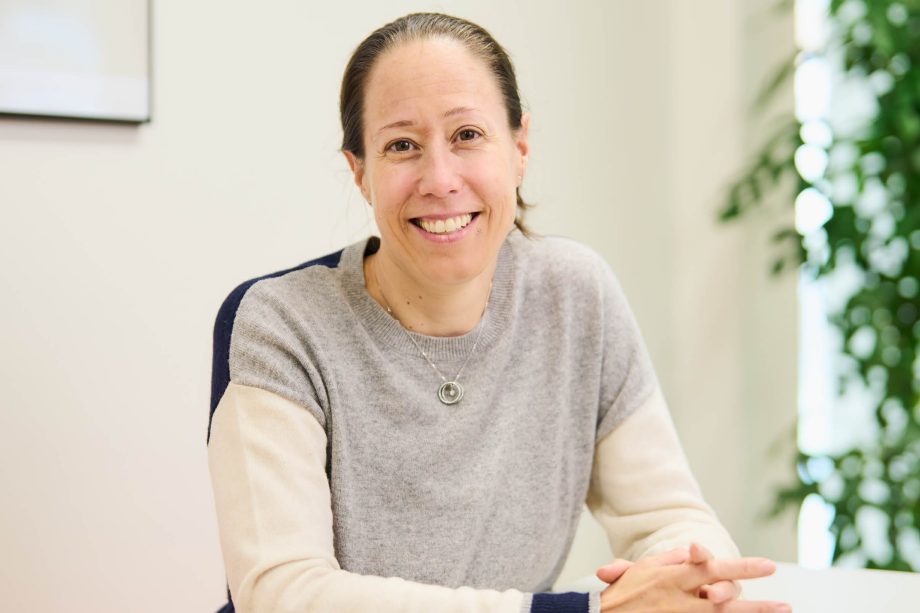My Cup of Tea, Emma Davies

Good morning, Emma. Thank you for joining us. Let's start with a simple question: what's your favourite tea?
In the morning, I prefer a few coffees, but I enjoy Earl Grey tea in the afternoon!
You’re the Chief Investment Officer of the Guy’s & St Thomas’ Foundation (GSTF), and you’ve also had a distinguished career in finance. Could you share more about your journey, and how you reached your current position?
I began my career at J.P. Morgan as a Research Analyst, then spent 10 years at Perry Capital. I later joined Better Society Capital, which was my first role focused on impact. This was during a time when the UK Government had decided to support the launch of a social investment wholesaler — funded largely by proceeds from dormant bank accounts across Britain.
The challenge was to build the foundations of a social investment market, and to align the interests of various stakeholders. This experience taught me a great deal, in particular the importance of communication and emotional intelligence. Investments ranged from the more traditional to social impact bonds, in every instance measuring impact through non-financial outcomes.
Eventually, I found I was missing the global investment world and markets, and I was fortunate to be offered a role at the Wellcome Trust. Rather than being the mission, they invest to enable the mission. Although not explicitly impact-focused, their philosophy is value-aligned: they exclude certain sectors and prioritise issues like climate change.
Most recently, I served as Co-CEO of Octopus Ventures before starting my current position as CIO of GSTF in May 2023, managing the £1bn charitable endowment. This is my dream role — the ability to put capital to work under a dual mandate, generating both financial returns and health impact, is brilliant.
Your point about missing the markets is intriguing, as it highlights the different personal fulfilments one can find in investing, and impact-based practices. Could you elaborate on those differences?
Absolutely. It often relates to what you see and when. A relatively small social investment can have an immediate impact and visibly change lives — such as providing access to sports facilities. When you’re trying to steer a “big tanker,” small improvements can have significant effects, but they may not be immediately visible, like improved reporting on climate data.
With substantial capital to deploy and a non-concessionary return target, you must recognise the current state of the world — and the market environment — as a starting point. Value alignment is focused on building a better world for tomorrow.
It sounds like each process is the sum of its parts. In terms of impact and engagement, could you discuss the distinctions between the private and public markets, and also across different industries?
Our work at GSTF in the public markets focuses on governance, stewardship and voting power. In addition, we do what we can to use our voice as an investor to support our Foundation’s mission.
In the private markets, building lasting relationships is essential. With listed companies, it’s about identifying the senior person focused on wider business impact and then working with them to find an alignment of interests. We have found that it is vital to engage on issues where we have credibility. Private Equity investments last longer than the average marriage, so it is important to take the time to truly understand who you are working with!
As far as different industries are concerned, they all present different challenges. In food, for instance, transparent labelling enables consumers to make healthier choices when shopping, so we have engaged with companies in this sector regarding the provision of clear nutritional information. Another focus for GSTF is air pollution — one area of our work has been discussing the tire quality for large vehicle fleets and how this can have a meaningful impact on air pollution.
Put simply, it all depends on what you’re dealing with.
Could you share your approach to portfolio building? I've heard that you subscribe to the camp of "LOMO" (Love of Missing Out) more than "FOMO" (Fear of Missing Out).
As a Foundation, we focus on what truly matters to us. We’re clear about our return objectives, liquidity needs, impact goals and risk tolerance, and the combination of each is unique to our institution. For us, value alignment is integral. We aim to live by our mission.
We have a dual mandate. We’re creating an investment strategy designed to generate strong financial performance, while still seeking to have a positive effect on people and the planet. This enables us to support our collective vision of a society that helps everyone stay healthier, for longer. We want our money to be put to work by managers that are thoughtful about their approach and support our aim of making the world a little better today than it was yesterday.
How has becoming a mother influenced your investment philosophy, if at all?
I think I’m better at planning for the long-term and cutting through the noise. Also, I'm probably more efficient now! As the saying goes, “If you want something done, give it to a busy person!”
What advice would you give to someone interested in values-aligned investing?
Perfection is the enemy of good. Stand back and look at the bigger picture. You can begin by identifying what matters to you and from there, for example, exclude certain sectors or stocks from your portfolio.
How do you manage your personal finances, and how does that align or differ from your work at the Foundation?
I take a long-term view and don't worry about volatility, which is reflected in my asset allocation. I could be more thoughtful about value alignment in my personal finances, though, and that’s something to work on — taking my own professional advice, I suppose!
Experience the full possibility of you wealth
We can help you navigate a complex financial landscape. Reach out today to learn how.
Contact us